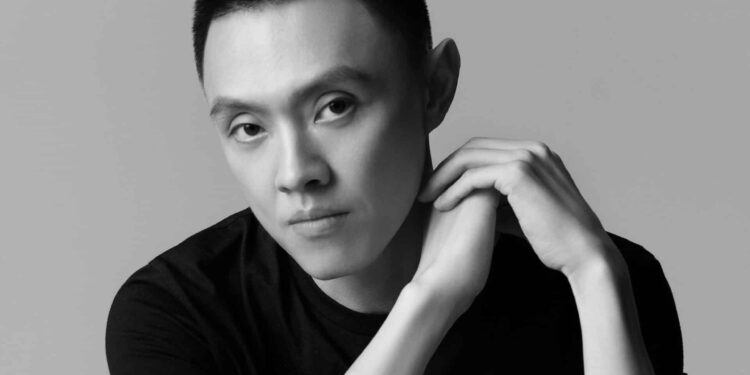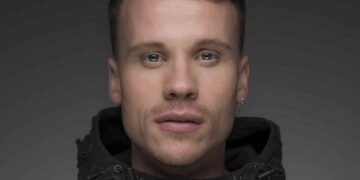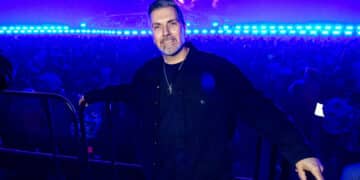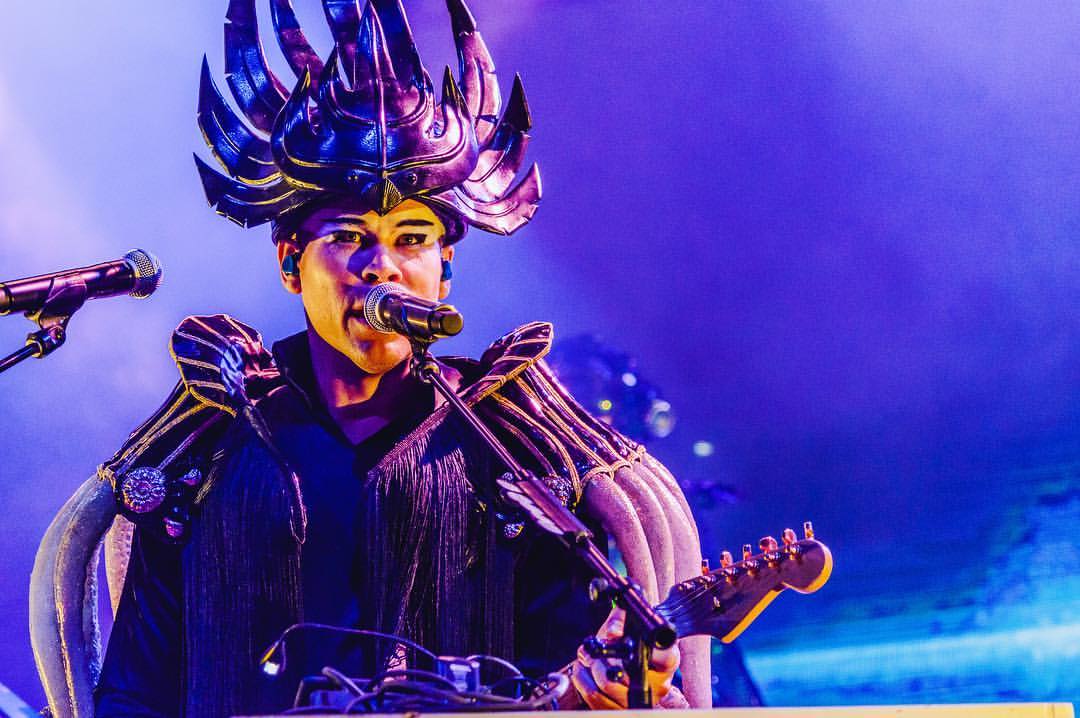Ruth Royall swung by to chat about her debut album, Queen, and navigating the music industry as a woman while balancing her music career and motherhood.
DJ, producer, live artist, vocalist, lyricist, label owner, activist, and mother—Ruth Royall can do it all. Her music catalog is as dynamic as her resume, spanning several genres from drum and bass and garage to house and trance, and also dubstep. After years of carving out space for herself in a male-dominated industry, Ruth Royall released her debut album Queen via her own imprint Royall Sound on October 17 — a body of work completely and unapologetically her.
“The message to take up space and be your true self really shines through in the album, and I’m really proud of what I’ve created,” Ruth said about the album.
After Queen was released, we caught up with Ruth Royall to discuss the creative process and central themes of the album, her music being an avenue for promoting female empowerment in the music industry, and balancing her music career and motherhood. Listen to the album on your preferred streaming platform, and read on for the conversation!
Stream Ruth Royall – Queen on Spotify:
Hi Ruth, thanks so much for taking the time to chat with us today! Queen is your debut album and marks a new chapter in your career. What story or journey did you want the album as a whole to tell?
Queen definitely marks a new chapter for me. I’ve been wanting a platform where I can express everything I create, not just one sound, and releasing this album independently has finally allowed me to do that. It spans the full spectrum of rave culture, from breaks and trance to dubstep and, of course, drum and bass.
I think an album is the only format that really gives you that space, it lets you tell a story and include tracks that might not work as singles but still need to exist in the world. Queen came together over quite a long time, so it’s full of my personal stories as well as reflections on the world around me. I’ve always wanted to make an album because it feels so much more substantial and lasting than singles. It’s been a huge journey getting to this point, and I’m honestly so proud of it.
Can you walk us through the creative process for Queen, from initial ideas to final execution?
The first songs that came together for Queen were “Bop” and “Fuk With My Stuff.” I originally made this little garage mixtape when I was first exploring production, just messing around with samples and writing stream-of-consciousness lyrics, without any pressure or expectation that the tracks would ever see the light of day. That freedom ended up being the foundation of what Queen became.
When the idea for an album started to form, I knew I wanted to collaborate, so I reached out to Belfort, who worked with me across a lot of the tracks. Songs like “Forevermore and Strangers” came out of writing sessions where the results just felt too good to give away; I knew they had to stay part of my own project. The whole thing kind of grew naturally over time, until one day I just sat back and thought, I think this is an album.
A lot of the tracks went through huge transformations. “Gravity,” for example, started out as this laid-back, soulful song with piano and double bass. But when Belfort and I began working on the arrangement, I knew I wanted something bigger, cinematic strings, more drama. It evolved really organically into this massive dubstep moment, and that’s when I knew I had to get Doctor P involved.
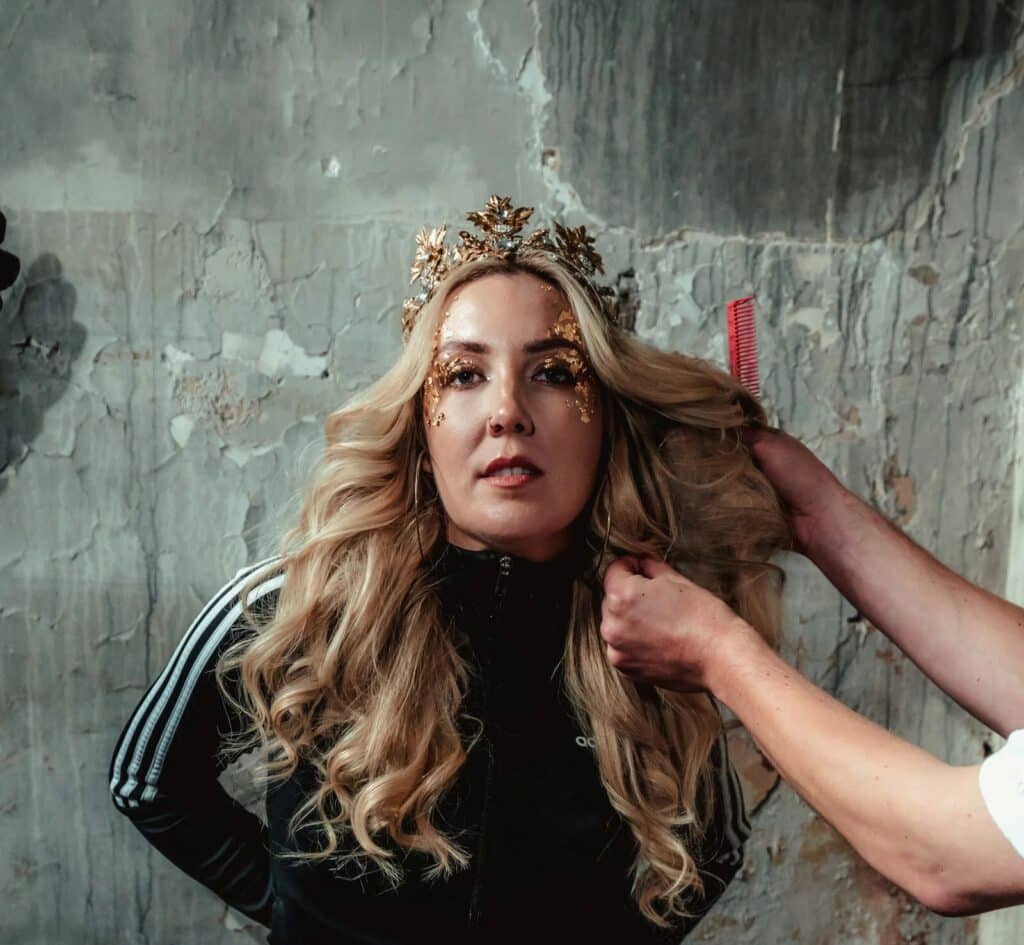
You’re both a vocalist and songwriter as well as a producer. When working on Queen or your music in general, do the lyrics and vocal melodies usually come first, guiding the production, or do you start with the beats and sound design and let the words follow?
It really depends on what I’m working on. If I’m producing a track myself, I usually start with the chords and the overall feel, that’s what sets the emotional tone for me, and then I start writing the lyrics and melodies around that. But when I’m collaborating as a songwriter, I’m often toplining, so I’ll be writing to whatever instrumental or idea I’ve been sent.
What I really love doing is starting with the bare bones – chords, a beat, some pads, and the general vibe—and then working with another producer to bring the track fully to life. That’s actually how a lot of the songs on Queen came together. It’s a process that feels really collaborative and organic, and it gives each track its own identity.
The second single off the album, “Bop,” is a declaration of female autonomy in electronic music. How do you hope the album in general will inspire other women entering the industry?
I love this question. I really hope Queen inspires other women and anyone who feels like an outsider to do things their own way. I banged on a lot of closed doors before I found the right home for this project. It’s hard to carve out a space for yourself in music, no matter who you are, but it can be especially tough when you’re in the minority. You’re expected to fit into a box far more often.
I’ve been told by festivals that there wasn’t space for me on a lineup because they already had one female act playing dance music. That’s just wild; it shouldn’t be happening in 2025. “Bop” came from that frustration. It’s a tongue-in-cheek way of saying, “No matter how many times you turn us down or stick us in the graveyard slots, people still want to hear what we have to say and we’ll still get the vibe going.”
I hope that when people see what I’ve done, it gives them the confidence to back themselves and their vision. The industry can be tough, but we need music and we need everyone’s voices, not just a select few.
Female empowerment is a central theme in your work. How does that idea carry through in Queen?
A lot of the songs on Queen are about trusting yourself and taking up space, which is something I still need to remind myself to do. My songs often become the pep talks I need to keep going; they’re like that voice I wish I’d had the courage to speak out loud the first time around.
I’ve always felt strongly about fairness, and I find it hard to stay quiet when something doesn’t feel right. That always ends up coming through in my music. I’m a bit of an open book, really, if you’re not sure what I’m thinking, just go and listen to my latest track. A total nightmare if you’re dating me…
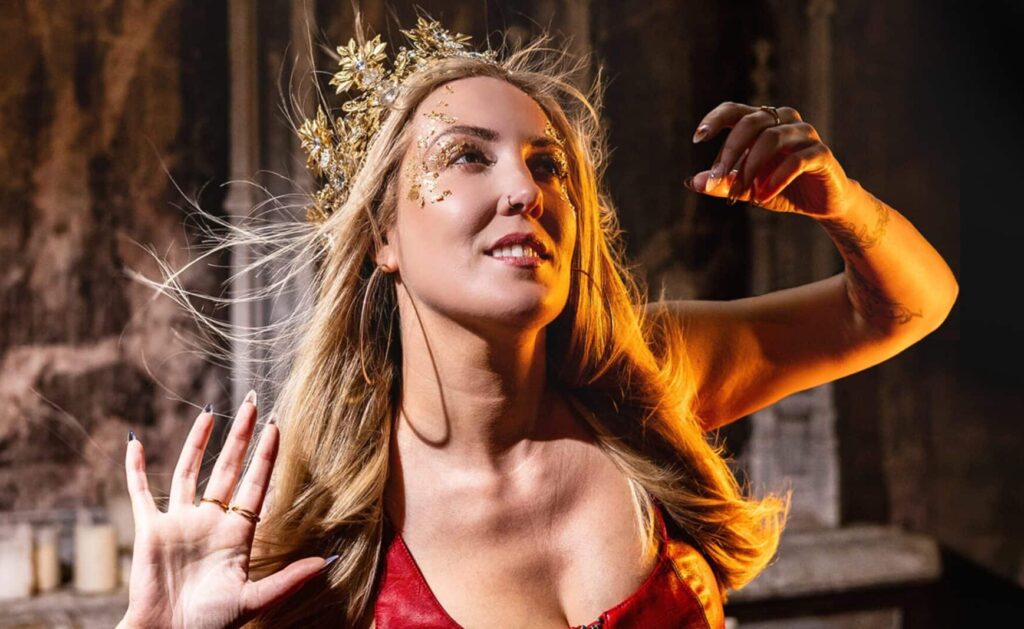
Beyond this, are there other personal or societal themes you explore across the album?
There’s definitely a lot about love, I can’t help it… My son’s in there – “Brightest Star” includes a sample of him saying “Mama,” which makes it one of the most special tracks on the album for me. “Easy Fix” is all about boundaries, setting them, keeping them, and not letting anyone take the p. That’s something I’ve to learnt the hard way, and I wanted to create an anthem to remind myself never to let it happen again.
I tend to write by feel, based on whatever’s happening in my life at the time. There’s even a song about my best friend Cyd, which came from a random conversation we had about someone she was dating (sorry!). It was just one phrase she used, “maybe we were just strangers all along?” and it sparked a whole song!
Launching your own label and producing your debut album must have been a huge undertaking. What insights or lessons have come from navigating this process on your own terms?
Yes — it’s been a lot! The whole process has been wild, and so many unexpected things, both good and bad, have happened along the way. Doing it all while raising a one-year-old definitely isn’t for the faint-hearted! I’m really lucky that everyone who collaborated on the album is also a friend, and I’ve got an amazing team around me, which has made the business side and all the paperwork so much easier to handle.
I was honestly really nervous about the release. All the self-doubt and nerves hit me at once, and I was convinced no one would get on board with this new chapter. But the response has been incredible — so many messages and DMs from people appreciating the album as a full body of work and connecting with it as a piece of art. Messages like that mean the world to me, especially when people take the time to reach out personally.
The biggest lessons I’ve learned are probably around patience. Most things do work themselves out in the end; sometimes, you just have to wait. I tied myself up in knots worrying if this was ever actually going to happen, when really I should’ve just made a cuppa and put my feet up!
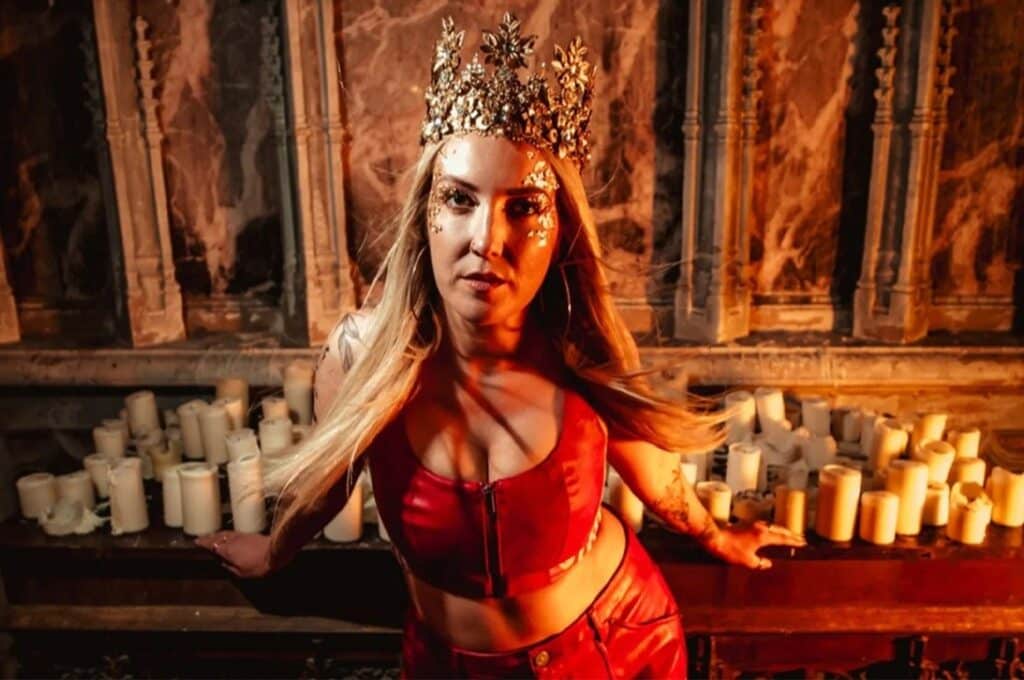
In addition to all of this, you recently became a mother. Being a musician and a mother are both full-time commitments. How do you balance all of this, and how have you grown as both an artist and a parent in the process?
Being a mother is the most amazing thing that’s ever happened to me. My son is pure joy, he’s come along on tours, photo shoots, and studio sessions, and he just takes it all in his stride. We even took my mum on tour with us, which she absolutely loved! It’s all completely normal for him, and everyone I’ve worked with has been so accommodating throughout my motherhood journey. You have to be flexible; things change constantly, but when we took him on tour to New Zealand and Australia, the promoters and artist liaisons were incredible. The same goes for my team; I’ve definitely had to ask for a few deadline extensions, and they’ve always bent over backwards to make it work.
I don’t think the industry as a whole is set up to support mothers, and everyone knows that, which is why I think everyone makes such an effort to support me in any way they can. I went back to work really quickly and toured all through my pregnancy. I’m not saying that to impress anyone; I wish I didn’t have to. But there just isn’t enough support for mothers, especially creatives and freelancers, so you end up saying yes and figuring it out as you go.
A lot of the projects that are happening now were already in motion when I became pregnant, so I’ve just had to roll with it. It’s a wild ride, but honestly, it’s the best one I’ve ever been on.
Finally, looking at Queen as a whole and everything you’ve accomplished so far, what do you hope listeners take away from the album and from your journey as an artist?
I hope people enjoy it, first and foremost. I want Queen to make people feel good, to feel all the feels, and to take them on a euphoric journey. Beyond that, I really hope my story inspires other independent artists to trust their creative instincts and put the music they believe in out into the world, even if it doesn’t fit neatly into a box.
I hope it shows other mums that you don’t have to disappear, that you can keep following your passion and do it in your own way. It’s not always easy, but it’s absolutely possible.
Follow Ruth Royall:
Facebook | Instagram | SoundCloud | YouTube | TikTok



